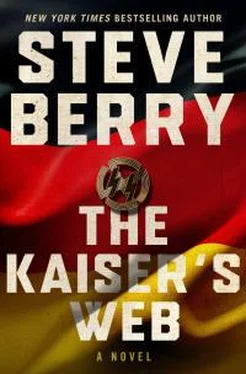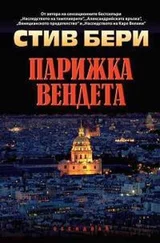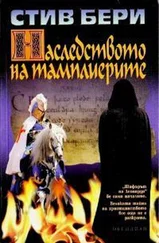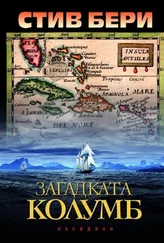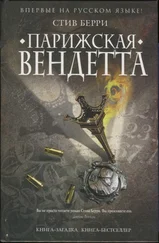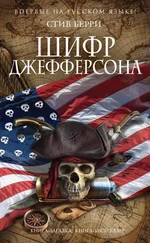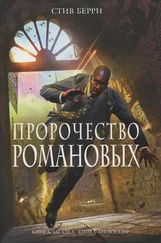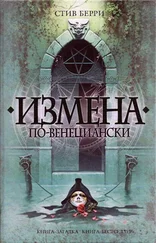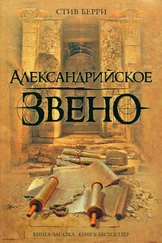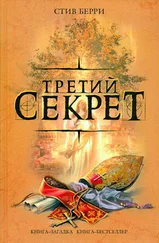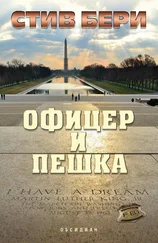“Maybe not, again considering what happened in Chile a few years ago. Jonathan Wyatt seems to have had quite an experience. His report describes a mansion filled with Nazi trinkets, two coffins beneath the house that supposedly held Braun and Bormann, the deaths of Gerhard Schüb and another American agent, Christopher Combs, and a hoard of Nazi gold. Stacked five feet high on six pallets, according to him. Stephanie says the information was hard to ignore, so a team was sent to investigate and they found the house exactly where Wyatt said. It was supposedly owned by Schüb’s brother. Not true. It was owned by an elderly couple who live in Ecuador. It had also recently burned to the ground. Not a speck of anything left but ash. Nothing Wyatt reported was there.”
“I remember Chris Combs,” Cotton said. “CIA deputy director. He disappeared.”
“And has not been found to this day,” Danny said. “According to Wyatt, Combs was killed by Gerhard Schüb.”
“Wyatt is a bull in a china shop,” Cotton said. “But he’s not a liar.”
“That’s what Stephanie said, too. Hence another reason why I’m here. From our standpoint, all of this was forgotten. An anomaly that really didn’t matter. Now we’re not so sure. There could be more to this.”
Bormann. Braun. What really happened in the Führerbunker at the end of the war? Hitler’s child? Bormann’s son? Cotton had to admit, it was all quite tempting.
“England is gone from the EU,” Danny said. “The far left has sent Greece into economic chaos. In Hungary a neo-Nazi party has pushed the government to an extreme. The greatest mass arrival of immigrants since World War Two has strained the resources of nearly every EU country. Sweden, Italy, Hungary, and Austria have all drifted to the right. Greece, Ireland, Portugal, and Spain are nearly bankrupt. Couple all that with near-zero economic growth for the past ten years, and the fact that Russia is becoming stronger by the day, and the European Union is a powder keg waiting to explode.”
None of which sounded good.
“Germany is the strongest economy and the most populated country in Europe. How it goes is how the EU will go. But recent opinion polls indicate that a quarter of German voters are unsure and the rest are split between Eisenhuth and Pohl. It’s a skintight race.”
“So anything could tip the scale,” Cotton said.
“You got that right. Anything. Even unsubstantiated rumor, however far-fetched. We can’t allow Theodor Pohl to claim the Chancellery.”
“Why isn’t Washington on this?”
“They are,” Danny said. “But Fox managed to make an enemy of Marie Eisenhuth really quick. He’s even hinted publicly at support for Pohl. It’s another reason why I need your help. We have to ensure that Eisenhuth wins. And, full disclosure, there’s no money here to pay for your time. This is a freebie. A favor to me. I’ll owe you both.”
Cotton liked being owed favors.
“There’s more to tell you,” Danny said. “But to know that you have to get off the pot or crap. It’s your call.”
He glanced at Cassiopeia, who shrugged in that cute way of hers that said, I’m good if you are.
The chopper bucked a bit, as if agreeing, too.
“We’re in,” he said.
CHAPTER NINE
T his is my recollection of a visit with M artin B ormann in the summer of 1955. The occasion of our meeting was to celebrate the birthday of his son. The boy was three, and we enjoyed cake and beer during a party with neighbors. Bormann asked me about Nuremberg and the war trials, which had long since ended. He was amused at the notice the Allies ran in the newspapers notifying him of his conviction in absentia. A death warrant still existed, but he is not the least bit concerned. As to Gerda, his first wife, he lamented about her death but not with the sadness of a man longing for his lost love, more in the tone of a fugitive disappointed at failure. He was aware of her death from cancer in March 1946. Her conversion to Catholicism was particularly repugnant to him, as was her consignment of their children to a Catholic priest. He wondered about his children but realized they, like everyone else, believed him dead. His focus now is his new family and the responsibility with which he has been entrusted.
Before he died, Hitler executed a last will and testament. After the war that document enjoyed worldwide publication, and its pronouncements are well known. Bormann was the named executor of that will. During our conversation he was quick to quote from its text. He told me exactly what Hitler wrote. I die with a happy heart aware that there will spring up the seed of a radiant renaissance of the National Socialist movement. Bormann scoffed at such a dream. He harbored no desire to renew the Nazi move ment. He was pragmatic in his declaration that Hitler’s idea had been ill conceived and poorly executed. Of course, he said, the benefit of hindsight had made clear all of the mistakes. It was strange to hear him speak in such a manner. Hitler had been a witness at his wedding to Gerda. His firstborn was named Adolf, in honor of his godfather. He served Hitler with the obedience of a guard dog, becoming a willing participant to everything he did.
I asked whatever did he mean and he explained that National Socialism was dead. Communism would not fare any better, he noted. It was inevitable that all of the puppet regimes in Eastern Europe would fail. Hitler foretold that outcome and Bormann agreed. The West would dominate the world, of that he was sure. He did not necessarily concur with such a result, only that politics and history had already determined the victor. He liked to say that any government that must force its citizens to stay within its borders is doomed from the start. Again, another strange comment from a man who helped exterminate millions, many his own countrymen.
I wanted to inquire further, to know what caused such a transformation in this man whom I remembered as obsessed with power. But I remained silent and simply listened as he ranted.
His physical appearance had changed. Still a sallow-skinned face, round and fleshy with broad nostrils, his eyes framed by a perpetual squint, glaring with the same nothingness I remembered from the war. But he’d lost weight. No longer rotund. And muscular, carrying himself with a clear air of contentment. He still indulged in the vanity of dress, sporting a cashmere jacket, proper-fitting trousers, and shiny boots. I recall what Hitler once said of him. “What he undertakes he finishes. Sees that orders are carried out. A brutal man.” So I remained mindful that this seemingly pleasant, country gentleman was indeed a devil.
On this day, though, Bormann’s mood was buoyant. His son was three and had received a pony for his birthday. The animal had been raised on a farm nearby. Bormann bragged that its owner insisted on the gift. No one knows his true identity, the war seemingly forgotten. Bormann just one of countless German immigrants that dotted the surrounding mountains and valleys, some with war ties, most with pasts that were not acknowledged.
The boy seems to love his pony. There is genuine affection from Bormann toward the child. I never thought him capable of emotion. Yet with the child he is different. Perhaps it is the fact that there really is nothing left for him? Yet he would not hear of defeatism. National Socialism was dead, he proclaimed again. But there is room for something different. A movement beyond a bold grasp of power. I asked what he meant. But he refused to explain.
Cotton finished reading out loud from the pages Danny had supplied. These did not bear the Soviet seal. Instead they were typewritten in a font different from the other pages.
Читать дальше
